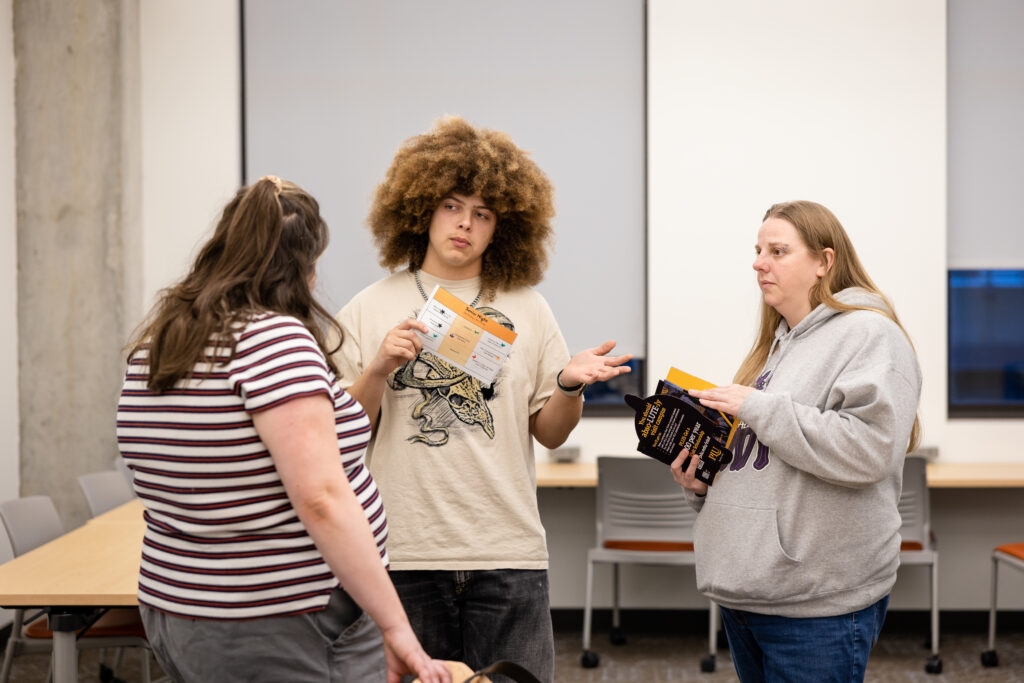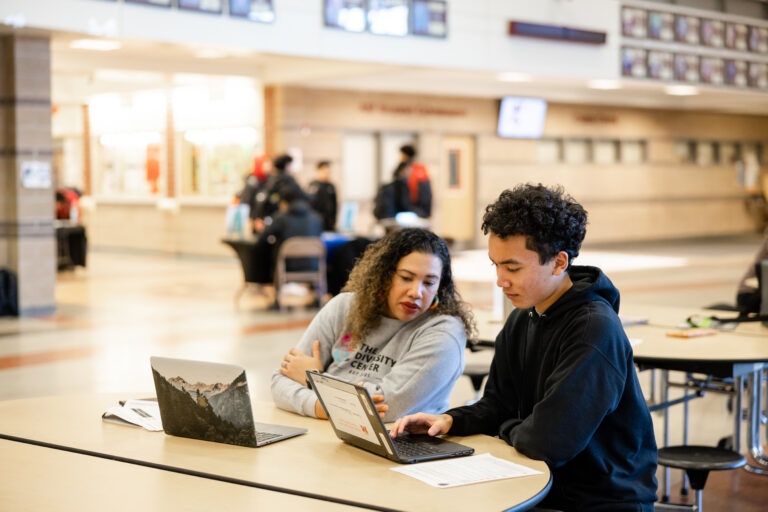Affordability remains a significant barrier to higher education, with access to financial aid playing a crucial role in students’ decisions to pursue postsecondary credentials. To help students navigate this hurdle, the Foundation for Tacoma Students launched Campaign Free Aid (CFA) in 2022, a multi-district strategic initiative focused on ensuring students receive the information and support needed to access financial aid. CFA brings together Graduate Tacoma community partners, including K-12 staff, financial aid administrators, and community-based navigators, to support students and their families through the financial aid application process. The Foundation hosts county-wide convenings throughout the year to bring these partners together to foster collaboration, build knowledge, share resources, and provide technical assistance.
Navigating the Challenges of FAFSA Form Changes
The 2024-2025 FAFSA form changes have presented new challenges for students and their support systems. Through CFA, we collaborated with the Washington Student Achievement Council (WSAC) to provide county-wide training sessions for partners, equipping them with the knowledge and skills necessary to effectively guide students through the updated application process.
In February and March, we partnered with schools, higher education institutions, and community organizations to host a series of events aimed at providing personalized guidance and support to over 300 high school seniors. More than 50 volunteers and school staff offered onsite assistance across 17 school sites in the Franklin Pierce, Peninsula, and Tacoma school districts. In addition to application support, students received information about scholarship resources and had the opportunity to connect with college admissions staff. This comprehensive approach allowed students and their families to gain a deeper understanding of what to expect as they plan for postsecondary education.
To ensure ongoing support, students needing additional help completed the ‘What’s Next’ senior survey, enabling the Foundation to match them with community-based mentors who provide continuous individualized support in evaluating and navigating postsecondary pathways. This ensures that students have access to the resources and guidance they need to succeed.
The coordinated and collaborative response of CFA has proven successful, with 6 of the 17 participating schools reporting year-over-year increases in financial aid application completions and 12 of the 17 schools outpacing state and national completion trends. This success highlights the importance of collaborative efforts in breaking down barriers to higher education and empowering students to pursue their postsecondary dreams.
Addressing Inequities in Financial Aid Access
While we celebrate this progress, we also recognize the need for continued support, especially for undocumented students, mixed-status families, and first-time college goers. These populations often require extra assistance and more time to complete the application process, particularly during this challenging cycle. Although the recent FAFSA form revisions intended to decrease barriers to financial aid access, they have created particular difficulties for these students. The delayed and inaccessible FAFSA forms have exacerbated existing equity gaps and concerns, reducing the window for receiving assistance and resulting in some student populations, such as mixed-status families, being the last to access the application.
Through our efforts with CFA, we are committed to providing students with the resources and support they deserve, ensuring that they have access to the assistance required to navigate the financial aid application process successfully. Students should not be held responsible for the complexities and delays of this process. To ensure that their postsecondary aspirations are not deferred or derailed by these failing systems, our community must provide ongoing and urgent support throughout the summer months. It is crucial that we come together to address the needs of our students and help them navigate these challenges so that they have every opportunity to pursue their educational goals without being hindered by systemic obstacles beyond their control.
The Crucial Role of In-School Support
The implementation and expansion of CFA to additional Pierce County school districts highlight the vital role of school counselors and college and career advisors in postsecondary planning. Surveys reveal that students value and need in-school support, and research consistently shows that counselor guidance significantly increases college enrollment rates, particularly among first-generation students. The National Center for Education Statistics (NCES) reports that “74% of students with parents who don’t have college degrees attended a postsecondary institution if they had met with a counselor in high school, compared to just 49% of those who did not.” Access to counselors is especially important during a condensed financial aid season, yet budgetary constraints result in unequal distribution of this resource across school districts and sites.
Data provided by Federal Student Aid shows that schools with access to full-time support staff, like Silas and Stadium High Schools within TPS, and Gig Harbor High School within PSD, are defying the odds. Despite this year’s challenges, these schools are maintaining and, in several cases, exceeding their 2022-2023 FAFSA submission rates. In contrast, schools without dedicated positions and established support systems struggle to keep pace, despite their best efforts.
Advocating for Comprehensive Postsecondary Navigation
At the Foundation for Tacoma Students, we continue to advocate for more postsecondary navigator positions within schools, emphasizing the need to secure funding to ensure broader and more equitable access to support. While the financial aid application is a critical step in a student’s postsecondary journey, it’s just one of many processes that students must navigate. Financial aid completion and postsecondary navigation should be treated as a comprehensive package of coordinated and continuous support, essential for a student’s successful transition to their next destination. In order to put educational and economic opportunity within reach for more students, a more comprehensive navigation system is absolutely necessary.
This year’s turbulent financial aid season highlights the critical need for a comprehensive support network for our students. It also demonstrates how systems, even those designed to promote equity, can unintentionally disadvantage the very individuals they aim to help. Through CFA, we will continue to bring together K-12 school districts, higher education institutions, and community partners to coordinate responses to the needs of students and families, both during the school year and over the summer. Our goal is to help Pierce County students and families overcome financial aid hurdles, unlocking funding that helps keep students on a pathway to adult success.
If you would like to learn more about CFA or get involved, please contact our CFA Strategy Manager, Abby Shade, at ashade@graduatetacoma.org. We are always looking for additional community champions and are interested in learning about effective practices being implemented in other regions and states. Additionally, we would love to hear about your plans for supporting students throughout the critical summer months to fill the advising gap that occurs when students are between educational systems




